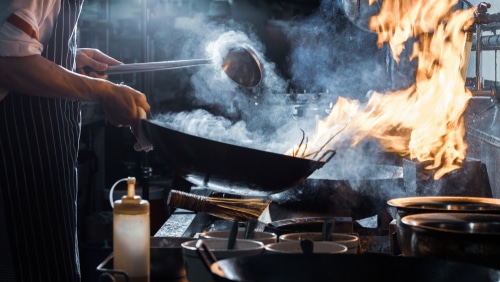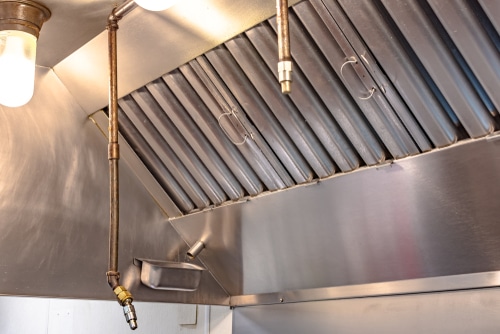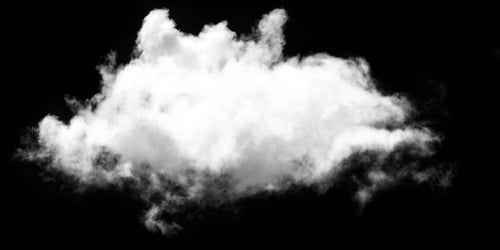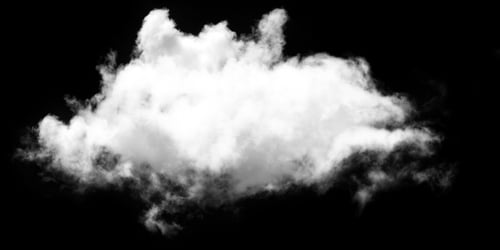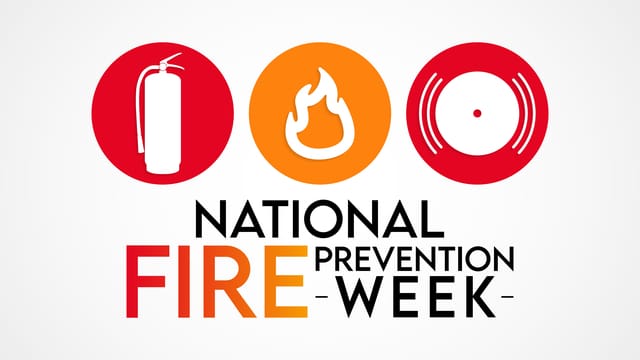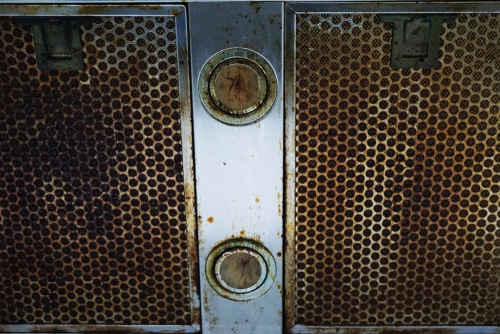NFPA 96 Fire Code in Windsor Ontario
Are You Looking For an REMARKABLE Hood Cleaning Company in Windsor Ontario? Our commercial cleaning services for restaurants include commercial kitchen exhaust cleaning, rooftop grease containment and all restaurant equipment cleaning and disinfection.
*** We are NFPA #96 CERTIFIED Kitchen Exhaust System Cleaning Company.
*** We provide Health & Safety CERTIFICATE as per NFPA 96 code, before and after pictures will be provided after the completion of work.
*** WSIB and Liability Insurance will be provided before the start of work.
Did you know that there is a fire code that specifically deals with exhaust systems and solid fuel cooking operations? That’s right! The National Fire Protection Association (NFPA) has developed the NFPA 96 standard, which covers many aspects of exhaust and ventilation systems in commercial kitchens. In this blog post, we will discuss some of the key provisions of NFPA 96, so that you can be sure your exhaust system is up to code!
Standard Fire Code for Vent Hood Cleaning in Windsor, ON
The solid fuel cooking operation produces a fire code that requires the removal of combustible contaminants prior to cooking. This means that all surfaces must be cleaned and all hoods and filters must be replaced. The cleaning process is essential to maintain a safe and effective kitchen environment. The NFPA 96 fire code establishes the minimum requirements for the cleaning of solid fuel cooking equipment.
Who is the NFPA?
The National Fire Protection Association is a global nonprofit organization, established in 1896, devoted to eliminating death, injury, property, and economic loss due to fire, electrical and related hazards. They do this through research, education, and advocacy.
Tell me the meaning of NFPA 96?
The National Fire Protection Association (NFPA) 96 is the Standard for Ventilation Control and Fire Protection of Commercial Cooking Operations. It provides guidance on the design, installation, operation, and maintenance of systems that remove combustible contaminants from commercial cooking equipment.
Hood and duct system components include hoods, Grease Removal Devices (GRDs), fans, ductwork, and make-up air systems. These components work together to remove grease-laden vapors generated during cooking from the airstream before they have a chance to accumulate on surfaces and become a fire hazard.
Oily sludge can accumulate in hoods, Grease Removal Devices (GRDs), fans, ductwork, and make-up air systems over time, reducing their effectiveness and creating a fire hazard. It is important to remove this oily sludge on a regular basis to maintain the efficiency of the system and reduce the risk of fire.
The standard for Ventilation Control and Fire Protection of Commercial Cooking Operations in Windsor
In order to remove combustible contaminants prior to release into the exhaust system, a grease removal device shall be installed in the ducts and hoods. The device shall remove a minimum of 75% of the grease.
Kitchen exhaust systems shall be designed and installed in accordance with NFPA 96. The purpose of this section is to provide minimum requirements for the design, installation, and maintenance of kitchen exhaust systems to remove smoke and heat from cooking operations.
An unsafe kitchen exhaust system can lead to a grease fire. A grease fire can spread quickly and be difficult to extinguish.
NFPA Fire Codes for Rooftop Grease Containment in Windsor Ontario
As a properly trained and experienced roofing contractor, you should be aware of the NFPA fire codes for rooftop grease containment. Specifically, you should know that there are three primary types of grease fires: Class A, B, and C.
Class A Grease Fires are the most common and occur when cooking oil or grease is heated to its ignition temperature. Class B Grease Fires are less common, and occur when flammable liquids such as gasoline or alcohol are involved. Class C Grease Fires are the least common, and occur when electrical equipment is involved.
Grease Removal Devices
All commercial cooking equipment must have some form of grease removal device to protect the exhaust system from becoming heavily contaminated. The most common type of grease removal device is the grease filter. Grease filters are usually made of stainless steel and have a mesh screen that captures the grease before it can enter the exhaust system.
Grease Laden Vapors for Windsor Restaurants
If these vapors are present, they can quickly ignite, causing a dangerous and potentially deadly fire.
That’s why it’s so important to have a proper cleaning schedule in place for your commercial kitchen. This will help to ensure that grease residue is removed on a regular basis, minimizing the risk of a fire hazard inside your restaurant.
Commercial Cooking Operations for Windsor Restaurants
The National Fire Protection Association (NFPA) 96 fire code is the international standard for low volume cooking operations. The code establishes minimum requirements for the design, installation, and operation of commercial kitchen exhaust systems.
In recent years, there has been an increase in the number of reported restaurant fires. These fires have often been attributed to inadequate exhaust systems.
Exhaust air must be discharged to the outdoors in a manner that prevents it from being recirculated back into the building. The code requires that grease-laden vapors be contained and exhausted at a rate that will prevent them from accumulating in the kitchen or other areas of the building.
What is NFPA 96 and How Does it Apply to Me in Windsor ON?
If you are in the restaurant business, then you should be familiar with NFPA 96. This code covers the contaminated portions of cooking exhaust systems and provides guidelines to prevent fires. In order to comply with this code, you need to have your system cleaned by a certified company at least once a year.
Your system can become contaminated with grease deposits, which are a major fire hazard. If you don’t clean your system regularly, you could be putting your business at risk. Fortunately, there are companies that specialize in cleaning exhaust systems and can help you comply with the NFPA 96 code.
NFPA 96: Standard Fire Code For Vent Hood Cleaning in Windsor Restaurants
As a fire administrator, you’re well aware of the importance of fire safety in commercial kitchens. But did you know that there’s an entire fire code devoted to cooking? It’s called NFPA 96, and it covers everything from the size and placement of exhaust fans to the volume of cooking that can be done in a given space.
Frequently Asked Questions - What is NFPA #96 FIRE CODE Anyways?
The National Fire Protection Association (NFPA) is a global nonprofit organization, established in 1896, devoted to eliminating fire, electrical, and other risks. NFPA 96 is the fire code that establishes requirements for commercial cooking operations. The purpose of this code is to prevent fire hazards associated with the use of cooking appliances.
The NFPA 96 fire code is the National Fire Protection Association standard for commercial kitchen hoods. This code sets forth requirements for the installation and operation of fire suppression systems in commercial kitchens.
One of the most important aspects of the NFPA 96 fire code is the requirement for cooking volume. Commercial kitchens must have a certain amount of exhaust fan capacity to keep the fire from spreading.
The National Fire Protection Association (NFPA) is a global nonprofit organization, established in 1896, devoted to eliminating fire, electrical, and building hazards. They do this through the creation and promulgation of more than 300 consensus codes and standards intended to minimize the possibility and effects of fire.
The fire code (NFPA 96) requires the fire administration to approve the cooking volume and hood size for commercial kitchens. To calculate the CFM needed for your commercial kitchen hood, use this simple formula:
CFM = (Hood Length x Hood Width x Ceiling Height) / 100. This will give you a minimum CFM requirement.
Now that you have your minimum CFM requirements, the next step is to select an exhaust fan that will provide the necessary airflow.
When selecting an exhaust fan, make sure to choose one that is certified by Underwriters Laboratories (UL). This certification ensures that the product has been tested and meets safety standards.
What People Are Saying
See what our customers are saying about us



We are a commercial restaurant kitchen exhaust hood cleaning business based in Windsor, Ontario, that specialises in commercial hood cleaning for restaurants. Cleaning your kitchen exhaust ductwork should be done at least once a year, if not more often depending on the volume of your restaurant. Keep in mind that a buildup of grease might result in a fire. Finding the best hood cleaning business in Windsor Ontario – Your insurance company will also want a certificate of cleaning, so contact us immediately and let us take care of your cooking hoods, kitchen exhaust fans, and ductwork..
WAIT! – Not in Windsor Ontario. That’s ok, we offer hood cleaning services in these cities and all surrounding areas: Toronto, North York, Oakville, Markham, Scarborough, Etobicoke, Pickering, Oshawa, Whitby, Brampton, Vaughan and Mississauga
Our Services
- Exhaust Hood Cleaning
- Commercial Kitchen Exhaust Cleaning
- Restaurant Equipment Cleaning Windsor
- Rooftop Grease Containment Windsor
- Exhaust Fan Hinges & Installation
- Windsor Pressure Washing Service
- NFPA #96 Fire Code in Windsor
- Disinfection Services Windsor Restaurants
- Hood Filters Maintenance & Replacement
- Windsor Food Truck Hood Cleaning
Follow Us

